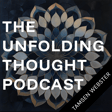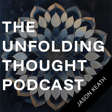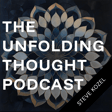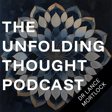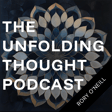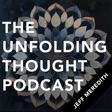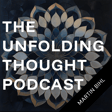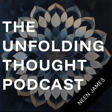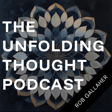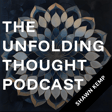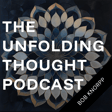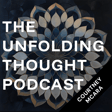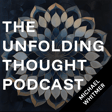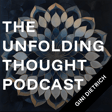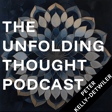Introduction and Guest Overview
00:00:03
Speaker
Welcome to the Unfolding Thought Podcast. My name is Eric Pradham. Today's guest, Mike Wiles, better known as Tractor Mike, is an expert in compact tractors, rural living, and small-scale farming.
00:00:18
Speaker
Mike built his career around understanding the needs of part-time farmers and weekend hobbyists from managing a tractor dealership to becoming the biggest voice in compact tractors on YouTube.
Topics of Discussion
00:00:32
Speaker
Mike and I talk about the changing landscape of rural America, exploring why so many people are returning to the land, the economic and demographic shifts affecting agriculture, and what the future holds for small farms and part-time farmers.
00:00:50
Speaker
I reached out to Mike because I have some experience with tractor manufacturers, have seen a number of his videos and was intrigued by some recent videos he did discussing sales, inventory and manufacturing forecasts in North America.
Mike's Career Journey
00:01:08
Speaker
I really enjoyed this conversation with Mike and I hope you will too. And now I bring you Tractor Mike. Mike, thank you for joining me. Would you mind telling me a little bit about yourself?
00:01:20
Speaker
ah My name is so Mike Wiles. I'm a tractor geek. I started out in a career in radio, went into sales for a farm equipment company. That evolved into managing a dealership, tractor dealership.
00:01:34
Speaker
And that evolved into a YouTube channel where I target, by and large, folks that move out to the country or weekend farmers that are looking for a tractor that have never been on a tractor.
00:01:45
Speaker
And try to educate them about how to select a tractor, what the terms are, what the things do, how to maintain it, and above all, how to be safe on it. Because a small tractor can kill a person just as easy as a big tractor can.
00:02:00
Speaker
And tractors are pretty dangerous if you don't know what you're doing when you're on one. So my YouTube channel is Tractor Mike. If you Google me, you'll find me. And I'm just, I'm kind of a tractor geek. I've always enjoyed being around tractors and equipment and has spent my entire career but pretty much around tractors and equipment.
00:02:20
Speaker
When I was at radio, I was a farm director back when, before the internet, when if you wanted to know corn and soybean prices, you turned on the radio and I was the guy that gave them to you. And um that evolved into a career in farm equipment sales. And so so that's that's kind of my background. i'm i'm I follow the the equipment industry and ah where it's going. And right now, nobody knows.
00:02:43
Speaker
Thank you, Mike. Your involvement in tractors or equipment or maybe even their use cases, you know, farming and agriculture and so on.
00:02:55
Speaker
Did you have any experience with that or involvement with it in your childhood, like growing up on a farm or in a rural area, for example?
Tractor Market Segments
00:03:03
Speaker
I grew up on an apple orchard, and we used small tractors there.
00:03:08
Speaker
And um um I've always been more of an enthusiast of the smaller tractors than anything else. and and I work worked in the operation for for years. even Even when I was working, had a job in town, I'd still come down to the the orchard on the weekend and and assist and harvest and things like that. So yeah, I've been around tractors my whole life.
00:03:29
Speaker
Mostly the small stuff though. And i'm I'm saying small stuff, a utility tractor, ah fifty a 50 horse around there was what we had on the farm. And as I evolved in my career, I had to be around the the bigger stuff and combines and articulated tractors. And i I have less of a passion for them, to be honest with you.
00:03:48
Speaker
I really like the small stuff. I live out in the country now and I've got a 40 horse tractor that I use to groom my my property. and and And I identify with that that audience pretty well.
00:04:00
Speaker
ah The big farm folks, are in kind of a different world
Rural Living Trends
00:04:03
Speaker
than I exist. yeah but when you When you look at tractors and tractor sales, you've kind of got to separate it. There's the small tractors that are sold to primarily people that are not making a living off of them.
00:04:15
Speaker
ah They're just, you know, grooming an estate. And then that's hobby farmers or weekend farmers. And that's what I am. And that's who I speak to. In the middle, you've got ah part-time farmers, and and there are folks that have got a job in town, and they have a small tractor that they either, you know, maybe have a small farm where they grow items for a farmer's market or they have livestock.
00:04:40
Speaker
And then you've got the real farmers, the big farmers that buy the the huge tractors. And I follow all of those markets, but my passion is the the folks that have small tractors.
00:04:52
Speaker
I usually say two to three acres is ah the person that's got that amount of land is candidate for a subcompact tractor. And and um that market has has blown up.
00:05:02
Speaker
And they're they're about really a ah big the size of a big garden tractor. And that's that's usually where a lot of people get into tractors. It looks big if you're coming from a yeah ah garden tractor mentality.
00:05:15
Speaker
And so they'll buy a a subcompact tractor. It's got a front end loader on it, maybe a belly more, and they'll maintain their property. And then, and then well, I've got three acres. I'd like to have a place to hunt.
00:05:27
Speaker
I think I'll buy this property down the road. It's 20 acres. And then all of a sudden, if they're trying to keep that with a subcompact tractor, it's not big enough. So they'll trade that in on a bigger tractor.
00:05:38
Speaker
And the one thing about my audience is you never have the tractor you want. You always want the next size bigger because every step up, you can get your jobs done quicker and get to the lake or or hunting deer stand or whatever
COVID Impact on Tractor Sales
00:05:54
Speaker
Have you... seeing that your potential audience, you you know, your prospects perhaps, or your potential addressable audience has grown over time. And I ask that because I have the impression that there is something about a quote unquote return to the land or a desire for more again, quote unquote, natural living that even if it's not a major current in society or culture, that it's an easy, comfortable message to get passed around in social media.
00:06:36
Speaker
And we have plenty of urbanization that has gone on lots of people moving to cities and then there is a counter sort of push against that that I suspect would draw people out of a San Francisco or a Seattle to some rural area and so you having an active YouTube channel for example would make it easier for people to find information and then increase demand for tractors and associated equipment.
Spiritual and Therapeutic Aspects of Rural Living
00:07:09
Speaker
Have you seen that grow over time? and Absolutely. the In my area, for example, I live in the area around Springfield, Missouri, which is southwest corner of the state of Missouri.
00:07:20
Speaker
And um a lot of the ground here that used to be dairy farms and small farms has been chopped up into 10 to 20 acre plots. and And folks from outside are moving to these plots and and they're candidates for tractors.
00:07:36
Speaker
And the the compact tractor market is exploded. I mean, it's it's it's the biggest numerical tractor market in the U.S. by a long shot. And COVID was a kind of a crazy time, but during COVID, there were over 200,000 tractors under 40 horsepower sold in the U.S. s alone.
00:07:57
Speaker
And so, yeah, it's it's growing. And i I've always felt there's a yeah almost a spiritual aspect of of being in contact with the dirt and the outdoors.
00:08:09
Speaker
And there's a real therapeutic feeling when you brush hog your pasture and you get done and you look back and it's all just perfect and looks good. and And so, yeah, I question whether the next generation has that.
Future of Agriculture and Farming
00:08:23
Speaker
But for those of us that have a connection to the farm or even a second or third generation connection to the farm, I feel like there is a need, not everybody, but most people to longing to get back to the country and be in the open spaces.
00:08:38
Speaker
Now, the reality of it is, if you ah when you live in the country, there's things happen. Dog meets skunk, you know. it's It's not all romantic, but most of the people that do live ah move out to the country, there's a a segment.
00:08:53
Speaker
that goes out there and buys a place. And, and it's like people that move to the country and get their little property, love it and would never go back to the city. So I've got my three, three kids are all, all in urban areas and they, they love that. I don't,
00:09:10
Speaker
I think there's two of them that would never come back probably, but one longs to come back. So the question is, you know, what's going to happen with the future?
00:09:20
Speaker
And are there is is this something that is going to go on perpetually? Or at some point, are people, you know, have an urban garden or a rooftop garden in their apartment, and that's all they need in terms of the therapeutic dirt digging?
00:09:36
Speaker
Or is this something that lasts forever? On past me. I don't know. You mentioned earlier in what you were saying there that you question whether the younger generations kind of have an interest in working the land or being out in the land or something of that nature.
Technological Advancements in Farming
00:09:56
Speaker
And then you were kind of just saying you're really not sure about what things might look like in, let's say, 20 or 50 years.
00:10:07
Speaker
Do you feel like you have a prediction, even if you're not confident about it? Or do you feel like things are just so uncertain that it's kind of like throwing darts at a board?
00:10:19
Speaker
I would lean toward the uncertain part. If I were starting out as 30-year-old in the equipment business, I'd be a little bit concerned about where it's all going. the other There's so many factors.
00:10:31
Speaker
For one is automation and and GPS. As someone that's been on a tractor a lot in their life, if I had a bush hog that had GPS on it that would go out and clip my pasture,
00:10:45
Speaker
and I never get near the tractor, I would be perfectly fine with that. ah There's a lot of folks that love being on a tractor and and the therapeutic value that I mentioned earlier about that. So the big question is where technology gets us with the equipment,
00:11:02
Speaker
and how how much it'll be utilized. Now, the big row crop farmers are all in on GPS. They have to be. ah The input costs for a farmer that raises row crops are so high that every seed has to go in the right place. Every grain of fertilizer has to go in the right place to help them make a profit.
00:11:23
Speaker
And so they're using GPS and self-driving tractors and things like that. That is a market that, I mean, in order to survive, you have to be able to work the tech stuff because it's here. a lot of people don't realize that.
00:11:38
Speaker
but Farming has evolved into a highly, highly technical, automated, GPS-infused occupation. And and the the idea of an old farmer that climbs on his John Deere 40-40 and goes out and plows a field, that that's gone.
00:11:54
Speaker
So trying to predict where that comes out, I i don't know. i really don't. i I would say there will always be a segment of the population that loves being in the country, he loves the ah being out on the tractor, the solitude, and the the ability to just kind of put your mind at rest and and leave everything behind.
00:12:14
Speaker
But now whether that's half of the next generation or 2%, I have no
Demographic Shifts in Rural Areas
00:12:19
Speaker
idea. Just just don't know. Do you imagine that it might be, let's see, let me put it this way, actually. So, you know, i know that the projections are,
00:12:32
Speaker
that by 2035, so 10 years from when we're recording this, the United States should have more people that are 65 and older than 18 and under, and that one in five Americans will be 65 plus and and I believe the projection is that over 50% those people will live in rural areas with no family around them.
00:13:02
Speaker
The fastest growing demographic will be people 85 plus. So to make that explicit for people that are listening, there will be more people turning 85.
00:13:13
Speaker
And staying alive, then there will be people either being born or entering any other age, you know, turning 20, turning 30, whatever it is. And so it seems to me that if someone is, let's say, 40 years old right now, whatever age they are, but they're not at retirement age, certainly.
00:13:36
Speaker
And they have perhaps moved out to the country. They got themselves 10 or 20 acres. They purchased a tractor.
00:13:47
Speaker
And by maybe not 2035 for these people, but by 2045 or 2055,
00:13:54
Speaker
they may not have anyone to leave that land to. They may not have nearly as many people who even desire to buy it, except perhaps some bigger business. And I'm not trying to make an argument here about, you know, like corporate farming or something of that nature, but rather when I look forward into the future and and I think there will just be less young people in the United States relative to people who are older.
Tractor Market Post-COVID
00:14:24
Speaker
It also seems to me like there will be less people to take up that land. There will be a smaller market for compact and subcompact tractors.
00:14:35
Speaker
So it seems to me like that would require really intense planning. for not just our equipment manufacturers, but also people who are thinking about all of the supporting services, about farming and agriculture commodity prices, maybe.
00:14:56
Speaker
And so, i don't know, am I crazy in thinking that we may have a a lot of land and just not a lot of people to take up that the farming or to even use that land?
00:15:10
Speaker
No, you're not crazy to be thinking about that. The thing that I'll say about that, my audience, the hobby farmer, the weekend farmer, the land that they own is not prime farmland, by and large.
00:15:24
Speaker
The weekend farmer that moved out to the country generally has, like like I have, hilly ground, rocky ground, ground that's not as fertile, And so I don't know what the trend will be for my audience, a weekend farmer, hobby farmer. What you're saying, think about the same things. Where where does this go?
00:15:43
Speaker
The farm ground, that trend has has been and will continue to be bigger, bigger, And fewer, fewer farmers covering more ground with bigger equipment. The yeah economies of scale, once you invest in that GPS system and that self-guided tractor and a combine with GPS in it and the planter with GPS in it, you've literally got millions of dollars tied up in your business.
00:16:08
Speaker
And the more ground you can cover and the more crop you can produce, the the easier it is to pay for it. So there will be somebody farming the land and providing food, and how lucrative that is remains to be seen.
00:16:22
Speaker
But there will probably be a lot fewer, and they're going to be covering miles of territory. At the time that we're recording this, you have released, I think it's two videos, but maybe more in about the last month or so that have dealt with what tractor sales are looking like, what inventory looks like. You've talked about the differences that you've seen in some of the data from, I think it's the Association of Equipment Manufacturers, maybe some of their data showing what things look like in Canada versus in the United States.
00:17:01
Speaker
And of course, there's some things to be said and also speculated on around tariffs and any number of things today. But I suppose, can you give me a bit of a recap of what the state of sales or inventories look like from what you've seen?
00:17:23
Speaker
You you've kind of got to split the market down into into several segments. And we can talk about where they are and where they're going. on But basically what's gone on is that that COVID year where under 40 horse tractors just skyrocketed. Dealers were ordering with abandon to try to get anything to sell.
00:17:43
Speaker
And they knew, and I knew, and anybody in the business knew, someday all this inventory's inventory is going to come in and the demand is going to get back to normal. Right. That happened.
00:17:54
Speaker
and And they had oodles of equipment. And it was at a higher price than before because of inflation brought about by the crazy buying and the trying to get the pieces and parts to put the tractors together.
00:18:09
Speaker
So that all came back to normal.
Interest Rates and Market Stability
00:18:11
Speaker
We had a, I'll say a buyer's market, but it really wasn't a buyer's market. the The prices didn't really come down that much because they couldn't.
00:18:21
Speaker
Margins came down for dealers and incentive programs like financing got better. And there was a ah year or two there where the companies were trying to get supply in line with demand.
00:18:33
Speaker
And they did that. and And right now we're down in sales versus last year. And last year was down from the year before. and And we're seeing ah the market come down. And I don't really think this is a surprise to too many people because you had such a a glut of sales around COVID.
00:18:54
Speaker
It had to come back to normal. And it's it's kind of gotten back to normal. Now, the thing i follow a lot is is the years before you just totally take COVID out of the picture.
00:19:05
Speaker
the years up to 2019, where were sales there? And then come back after COVID, where have they been since? And we're actually down a little bit. And the best way I think to explain that is interest rates have affected the small tractor market. In order for there be a lot of people moving to the country, and that's what drives small tractor demand, you had to have low interest rates,
00:19:29
Speaker
And good income and a good economy. And so what's happened is interest rates have gone up. That has slowed the market on people moving. And so the the normal way the small tractor market works is you buy property in the country.
00:19:47
Speaker
you You try to maintain it for a year with your craftsman lawnmower and it blows up. And then about a year after you bought the property, you're in at a dealership to try to buy a compact tractor.
00:19:58
Speaker
And you're watching tractor bike YouTube videos. That's what I have you as you're passing through going to your orchard videos or your or your ah hobby farmer, farmer's market videos or whatever.
00:20:10
Speaker
or or hunting videos or so on. And so so that market has all slowed down. It's back to normal now. I feel like the manufacturers are being pretty conservative about building a lot of inventory.
00:20:21
Speaker
Inventory levels are are close to where they need to be. It's not a buyer's market. it's It's about normal. The mid-range tractor market has been really good because most of those folks that buy a mid-range tractor, a 40 horse to a 100 horse, are livestock producers.
Global Market Influences
00:20:38
Speaker
that market has been pretty good. It was good in COVID. And and it's it's a lot smaller than the compact tractor market, but it's it's down. and And probably for kind of the same reasons.
00:20:49
Speaker
The cattle market has been really good. There are some storm clouds on the horizon that it's going to come back down a little bit. The other thing that factors into both of these markets is the sticker shock of how much tractors have gone up.
00:21:02
Speaker
If you were shopping in 2019 before COVID and then you came along now and you're looking, the price is substantially higher. and And so that that's caused a few people to just say, well, I'm going to use this tractor another year and get by.
00:21:18
Speaker
Tractors over 100 horsepower are either larger livestock farmers or the top end of them are row crop farmers. That's following the livestock market and the grain market. The grain market is extremely soft right now. The worldwide supplies and and production of wheat, corn, and soybeans are have been high.
00:21:39
Speaker
i I'm not an economist, but I feel like what happened with row crop people is that when the Ukraine thing happened, and Ukraine's a pretty big producer of some some crops, they were out of the market for a while. They couldn't ship stuff.
00:21:52
Speaker
And so all the other producers around the world said, ooh, opportunity. So we'll we'll increase our production. We'll rent some more ground. We'll clear some more land. And so everybody geared up.
00:22:03
Speaker
And the market was really good around that time. the ukraine the Ukraine thing did sharply raise prices. And when everybody got geared up, and that's one thing about farmers, when they want to produce a crop, they can and they will.
00:22:18
Speaker
And so the world produced a bunch more. And the last couple of years, we've either been at above average or near record or record production. And so we have ample, ample supplies of all of our row crops and the market on on corn, soybeans, and wheat's down,
00:22:35
Speaker
And so farmers are in trouble. I shouldn't say in trouble. It's not like the 1980s when people were going out of business yet. But that's the way the direction is headed.
00:22:48
Speaker
And there's a lot of fear among row crop farmers right now. We're not in dire straits, but we sure don't want this thing to get any worse. And so they're they're pulling in and not buying bigger tractors, articulated tractors and combines. Those markets are way down.
00:23:05
Speaker
Now, you mentioned Canada. Canada is in some areas actually up from last year. And um I really think there's there's what's reality right now.
00:23:17
Speaker
And what's reality in the future? The reality is Canadian farmers are looking at our relations with our biggest trading partners and saying, that's not going to go well.
00:23:29
Speaker
And they're gearing up to produce more crop. So Canada is down in certain tractor segments, ah not as much as the U.S. And in some segments are actually up from last year.
00:23:42
Speaker
And normally Canada is 10% of the U.S. Whatever tractor sales are here, there'll be about 10% of that in Canada. they And they generally follow pretty closely. And unless there's some weird tax deal or some subsidy that artificially inflates demand, those will go together. And right now they're they're not going together that well.
00:24:00
Speaker
So that's ah a long, drawn-out version of where the tractor market is right now. That's really interesting. And there so many things to pull on there. But think the first thing that I'm going to ask about is, i believe you said that we are at more or less...
00:24:23
Speaker
peak production of soybeans, wheat, and a number of commodities. And also, i believe that demand is down.
00:24:37
Speaker
So How does having fairly high production in some of these commodities, at least for farmers in the United States and even equipment manufacturers, how does having fairly high production, but I guess softening demand affect the farmers themselves or commodity prices or whatever else?
00:25:01
Speaker
where What are the ripple effects over the next year or two? That's a great question. I really don't know right now how you can extrapolate where we are with all the uncertainty to where we're going to be. And that's that's a problem that farmers and farm equipment manufacturers and dealers, everybody all through the chain is trying to figure out where does this end? What's the what's the game plan so I can maximize my profit and and be a player for next 20 years? Yeah.
00:25:31
Speaker
The University of Missouri has what's called FAPRI, the Food and Agricultural Policy Research Institute. And I'm not intimately familiar with it, but I followed it for years from a distance.
00:25:43
Speaker
And what they do is they put all these factors into a supercomputer and and try to weigh them about how much they're going to impact everything. and From population demographics to interest rates to weather to you name it, they put it all in there and try to say, well, this is where we would be.
00:26:05
Speaker
and it's it's primarily there to help. lawmakers write a farm bill and they'll enter in if we if we put subsidies at this level what does this do to the rest of the market to prices and everything and right now i don't know how they're even able to enter information in there because there's there's so much uncertainty and literally the the things that really have driven this are three right now number one is covid and Again, I don't want to get political. If you believe COVID was ah the flu, or if if COVID was the worst thing you know that ever happened, doesn't matter.
00:26:40
Speaker
It took a lot of mouths that would have been fed out ah out of the world, and it disrupted the supply chain in everything we deal with. So even though things are getting back to normal, there's still lasting impact. I think the war in Ukraine had ah big impacts, and it's lesser so today than it was, because Ukraine is a big producer of certain crops.
00:27:01
Speaker
And then the third thing is, i'll tell you, uncertainty is going
Education and Innovation for Tractor Owners
00:27:04
Speaker
to kill us. And it's it's true. These guys that have got $800,000 combine that are $300,000 $400,000 or more, and a couple of tractors that are three four hundred thousand or more They've got a plan and they're already dealing with the weather, which is incredibly fickle and uncertain.
00:27:20
Speaker
And they need stability in order to make good decisions. And and right now we're not in a in a stable environment. I want to come back around to one thing that I've heard you talk about before, which is these people that are purchasing tractors,
00:27:39
Speaker
you know, tend to lack the education that they need. You mentioned it's really easy to get hurt and all that. But before we do that, because I think it might also bridge us into that, and it applies regardless of whether we're talking about someone living in a city or small-time farmer or big-time row croppers.
00:28:00
Speaker
You know, you have dealt with manufacturers. I've dealt with manufacturers. And so it seems to me that something that the manufacturers need to do is not just innovate with their financing,
00:28:13
Speaker
They also need to innovate with potentially completely reimagining what they're offering to people. Because you have, i think you said three children, right?
00:28:24
Speaker
And you have one maybe that might take over the land or maybe might move out to the country. But that tractor manufacturer might have to offer something, a completely different vision of how they're going to help your child grow.
00:28:39
Speaker
be who they want to be after they buy that land. Otherwise, they might just not see that it's even worth it. If it were me as a manufacturer trying to figure out the future, I would be spending an awful lot of money. First off, I feel like GPS and automation is is going to be a deal.
00:28:59
Speaker
Like I mentioned earlier, there's a pretty large segment of the weekend farmer market that I don't think they have any romantic view of being out on a tractor pulling a rotary cutter around, slicking off their land.
00:29:12
Speaker
So if you've got a device that would do that and mow my yard, I would be looking toward automating ah that process. You know, there's got to be some research done about what percentage of the market loves to be on a tractor. It it brings back memories of granddad's farm and what percentage just wants a job done.
00:29:30
Speaker
I've got a son-in-law that's in the tech field and I don't think he'd ever get on a tractor if he could get the job done without it. And I think that's a ah ah large segment, right or wrong, of the next generation.
00:29:43
Speaker
They value their time and and I could learn from them. So that's one thing that as a manufacturer I'd be looking look at. it I'm going to bring up something here that I've seen the manufacturers put all their emphasis in selling the bigger stuff to the row crop farmers. And they'll sell a big tractor to somebody and they they burn up a lot of parts and that's where the real money is in the business. They'll burn up a lot of service calls.
00:30:05
Speaker
There's a high profit margin. I don't really feel like anybody in the small tractor arena has really put any big money in developing something that is more conducive to us weekend farmers in decades.
00:30:21
Speaker
You name your brand, any brand of tractor today, and compare it to an 8N Ford, there's not that much difference. You've got a a rotary cutter on the back that you drag around the field. You're constantly looking looking back back over your shoulder to see where it's at.
00:30:36
Speaker
You've got a front-end loader. And when you try to pick up something, all the weight of the tractor's in the middle where the engine is. So you had to put a counterweight on the back to pick up any weight. We don't need that.
00:30:47
Speaker
We need a front-mounted rotary cutter where we can drive like we do with our zero turn and see what we're doing, see what we're getting ready to run over. We need the engine in the back to counterweight the front-end loader so we don't have to put something on the back.
00:31:03
Speaker
The three-point hitch on the back of a tractor, was great for pulling the plow, but we're not going to pull a plow anymore. And I've always thought that the first manufacturer that realizes this product could be more maneuverable, safer,
00:31:18
Speaker
and more user-friendly and market that to the small tractor customer, it's going to catch everybody else off guard, but no one has done it.
Redesigning Tractors for Modern Needs
00:31:26
Speaker
But I think if I were younger, I'd be in some company trying to figure out how to come out with a better product for the weekend farmer, and I would buy it tomorrow.
00:31:36
Speaker
and And honestly, if you had a product like that and you've got – 10 to 30 acres. You could probably push your bush hog across the field with it. It would be as maneuverable as a zero turn. You could put a deck on the front of it and use it as a zero turn. You got one machine doing all of that.
00:31:50
Speaker
And then if you put a cab on it, I think the first company that figures out how to get a cab on a zero turn. Now, I love being outside when I'm bush hogging running the tractor. I don't always like being on a tractor, but if I'm out, I like the fresh air. But most people need a cab.
00:32:06
Speaker
And a zero turn guy, somebody's going to come out with a zero turn with a cab on it. And I think that's something that needs to be developed. So I think there's tremendous opportunity for the tractor manufacturers to come with a product to us weekend hobby farmers.
00:32:22
Speaker
And they're all choosing to give us ah basically a modernized 8N Ford. But that's my opinion. There is opportunity to bring a different product to market and sell it to us in large numbers and revolutionize the market.
00:32:35
Speaker
And the the thought process is from most companies, well, we don't make that much money on these small tractor owners, and we're just not going to take any
Challenges in Tractor Service
00:32:44
Speaker
chances. But it's there. I completely agree with you.
00:32:48
Speaker
And having worked with some manufacturers, as I believe that you have, i have advocated for really pushing on thinking about what's the job that your customer is really trying to get done.
00:33:07
Speaker
And then how do we best serve that? And of course, we have to make trade-offs because the We have certain business realities. You know, can we reasonably develop a product or service and make a return on that? And we have existing staff and manufacturing capabilities and all of that.
00:33:29
Speaker
And yet still, I think one of the things that we've been saying is not just that there is a lot of change, but there's a lot of uncertainty. And yet in the midst of all of that uncertainty and change, there's still a strong desire to be a certain kind of person out on my land or to have a certain kind of life.
00:33:53
Speaker
So regardless of uncertainty, can we as a manufacturer or people in the space, can we just figure out how to deliver upon that lifestyle or that job that the client wants?
00:34:08
Speaker
And now one thing I want to put in here, because I think you sort of started off your answer with this, and I feel like it's really important. I believe you were talking about service And I have been told that a lot of compact and subcompact tractor buyers do a large portion of their own maintenance in large part because the dealerships are so far away.
00:34:39
Speaker
that either don't have a trailer to put my tractor on and tow it 100 miles, or i do, but again, it's 100 miles away and it's just not worth it.
00:34:51
Speaker
So it sure seems to me as well, like some of my audience, some of my customers, potential customers would be a lot more likely to purchase if they felt like They weren't hearing stories about, well, when the thing breaks down, now I can't use it for three months or there's a huge expense because I now have to get it to the dealership.
00:35:13
Speaker
So not just in the product space, but on the service side, there's, I believe, a huge opportunity. Definitely. If you want to see what the expectation is, go to a car dealership.
00:35:25
Speaker
And car dealerships have service departments like that they get your car in, you get an email, parts are ordered. You get communication back from a service rider that tells you the where where it is in the process and and when it's ready.
00:35:40
Speaker
You have a lot more customer service. And it won't sit on the lot for for three weeks. before it even gets looked at. And the reality of the farm equipment business, and and i I'm not saying I've got an answer to this because I managed a dealership for 11 years and we fought this.
00:35:57
Speaker
The guy that pulls in with 20 acres of the best alfalfa he's ever raised down and rain coming in and a net wrap that won't work. And the guy that, like me, that brings in his 40-horse tracker for a routine service, kind of wants it back before the weekend so he can bush hog, but doesn't really need it back.
00:36:13
Speaker
Who do you service first? And it's such a seasonal business, horrifically seasonal. And and I envy the car guys because they're not they're they're year-round. Cars break down ah consistently year-round.
00:36:27
Speaker
Tractors and and everything else is in the barn in the in the winter. So you have to have a staff that that can gear up and do overtime and add people that can fix hay balers and these small tractors and still keep them employed in the winter when you really don't need them. So that is a tricky thing to provide outstanding service the way the car guys do and follow up and all that and get that thing in, get it serviced and get it out the door. In the real world, it's really hard to do because of the seasonality of the business. But
00:37:01
Speaker
Also, you mentioned ah the distances, and that's that's a problem with a lot of manufacturers is that their distribution is spread out, and you are a long, long way. Maybe I want to buy brand X of Tractor, and the nearest dealer, there's there's a brand in our area. I don't know where the nearest dealer is. He'd be in at least a two-hour drive away. Well, that's not even on my radar. I can't do that when I've got people for the other brands,
00:37:27
Speaker
you know, 13 miles, I've got three or four dealers. So all of that comes into play. I've long thought that there's a place for more mobile service because a lot of times these weekend farmers like myself, I just want a guy to come out and change the oil on the tractor. And where I'm sitting right now within probably a half mile radius of me is probably four tractors that all need to be serviced at some point. If you could get all of them,
00:37:54
Speaker
Your mobile guy could come out and charge everybody a little service charge for being out here and make good money. And you don't have to truck it anywhere. So, yeah, there's a lot of things that could be done.
00:38:05
Speaker
But in the end, it is such a seasonal business. It's really hard to equate the farm equipment business with a the car business.
Tractor Safety and Education
00:38:14
Speaker
I mentioned wanting to talk to you about education.
00:38:17
Speaker
And i believe that you have said that there are a lot of people who move out to the country or buy a tractor. They run the risk of getting injured or they don't even know what to buy.
00:38:30
Speaker
so one, so one i would love to hear how you see sort of like the gaps in knowledge or even providing that education.
00:38:41
Speaker
How is it that people even could go about getting that education? And two, it seems to me like If I was a tractor manufacturer, that could be a space to step into.
00:38:54
Speaker
I don't want to pitch you too hard here, Mike, but sure seems to me like one of these manufacturers could come around and say, you've got a platform already. You've got a lot of knowledge.
00:39:06
Speaker
Couldn't we supercharge what you're doing and help to provide some education? But even if they didn't do that, am I thinking correctly that there is ah just a big gap in knowledge and even ways that I can go about getting educated about tractors?
00:39:23
Speaker
There was. if you If you really want to get educated now, you can go to YouTube. And I started in 2012 when I was still managing the dealership. and And I've probably been doing tractor videos longer than anybody.
00:39:35
Speaker
But there's a lot of other folks out there that do excellent content. I'm probably more on the safety aspect of it than most because I know anytime I'm on a tractor or doing any task, I always think, what's the worst thing?
00:39:50
Speaker
that could happen. And there's lots of bad things can happen with a tractor. They can roll over on top of you. It's incredibly important. You have roll bar in the upright position in your seatbelt fastened anytime you're using the tractor on slopes, especially.
00:40:06
Speaker
And most of us that have these weekend farm places have got slopes. And there's ah there's a power takeoff that you hook up to make your bush hog spin. And if you get tangled up in that or your hair gets tangled up in that or your hoodie strap gets tangled up in that, you're immediately dead if you're fortunate or maimed.
00:40:27
Speaker
And these things... If you didn't grow up around tractors, you don't know. And what I'm trying to provide and yeah, the what manufacturers and dealers could provide more of is the kind of education i got growing up with my dad on the farm. I'm i'm your daddy that's trying to tell you how to how to run a tractor.
00:40:47
Speaker
But the problem is a lot of people buying these tractors don't know what they don't know. And forcing them to get safety education, most of the items that you operate, there's you know, there's all this safety stuff in the owner's manual and you kind of ignore it with tractors. It's pretty important.
00:41:06
Speaker
Because if you don't know what you're doing, you could die. It's as simple as that. Farming has always been either the first or second, maybe some years third, most dangerous occupation.
00:41:18
Speaker
And it's because tractors are unstable on slopes and they have moving parts that could kill you. And and so you've got heavy weights up in the air. And if you don't know what you're doing, it could end badly. So I try to emphasize that.
00:41:31
Speaker
every chance I get, anything i could ever do to help that cause and and save some people from terrible outcomes, I'm i'm all in. is this something, you know, safety issues, something that you encountered, maybe not just in your childhood, you know, knowing people, whether it was working with your father and, you know, working on the farm, the apple orchard, but also potentially working at a dealership, running a dealership.
00:42:02
Speaker
Did you encounter people getting injured? I guess I'm going to call it too often, even though once is too often, but, you know, you just feeling like they just didn't know or they just didn't pay attention. And why did that have to happen? Did you encounter that quite a bit?
00:42:19
Speaker
I could tell you story after story. But two things, they got in trouble because they didn't know. And then there's a lot of folks. I've got a real good friend. I watched him get off his tractor with the power takeoff running and go back and work around his running disc bore conditioner. And I'm like, dude, you know better than this.
00:42:40
Speaker
What are you doing? And I'm just in shock. This guy is one of the biggest hay producers in this area, did ah stupid, stupid thing. And so you've got the people that don't know, and then you've got the people that do know they're trying to get a job done quickly and ignore their safety rules, and they they can all get in trouble.
Educational Content on YouTube
00:43:00
Speaker
I suspect that until such time as we see a decreasing desire for people to have a small time farm or just to have land, that there will be a persistent and growing need for people like you live.
00:43:23
Speaker
explain things in a way that people can get it because that manual with 60 pages of safety information is not something that people tend to look at. But at least as of today, YouTube videos, Instagram reels, TikTok, things of that nature do you tend to get shared and seem to be easier to consume for a potential audience like yours who might very well get injured without you being out there.
00:43:51
Speaker
Absolutely. If customers read their owner's manual, I probably wouldn't have a YouTube channel because basically almost everything I cover is related to something in that owner's manual.
00:44:04
Speaker
And um I've done multiple videos about how in the dead of the winter, like when you're sitting there... by the fire and your significant other is watching a TV show you don't care about, read the owner's manual.
00:44:16
Speaker
You will learn something. Every time i read my owner's manual, I learn something. But people don't want to do that. I get it. I don't either. It's boring. I go to sleep in the middle of it.
00:44:27
Speaker
And they will watch a video. So I think YouTube is amazing for keeping people safe and helping people find a way out of a problem. There's one power takeoff shaft that it was sold for years by multiple manufacturers.
00:44:44
Speaker
that it looks like to get it off, you push a collar in and it'll come right off and you actually pull it. And that has nailed so many people that I've done a video and it's got hundreds of thousands of views and people will thank me because they've been out with hammers and penetrating and everything, trying to get their PTO off.
00:45:04
Speaker
And they come in and Google, can't get my PTO off. My video comes up. And literally, I've had people just euphoric that I did that video. So YouTube is an awesome, awesome thing.
00:45:15
Speaker
Just like everybody else, I watch a lot of YouTube videos to learn stuff. And it's ah a tremendous vehicle for keeping people safe and helping them be better at what they do. Earlier in this conversation, you mentioned, i think, if people go to YouTube or Google and they search for Tractor Mike, they're going to find you.
00:45:36
Speaker
My experience with you and also based on this conversation, it seems like YouTube is one of the main places for people to go to check you out or connect with you in some way.
00:45:50
Speaker
You have a website where you have information. You also have a store and potentially other things. But... People should look up Tractor Mike or AskTractorMike.com, I believe.
00:46:07
Speaker
Yes. Are there other places you recommend that people go or ways in which they might reach out to you? Those are the two.
Business Model and Online Store
00:46:15
Speaker
The YouTube channel is is primarily where people find me.
00:46:18
Speaker
and And just to give a quick plug for how I actually make my money. I got into YouTube thinking I'd get a big sponsor and I got a ah fairly good size sponsor pretty early in the game and quickly realized that and they wanted approval of every a drip of content that I produce.
00:46:35
Speaker
And I I'm, I'm old and crotchety enough. I want to produce what I want to produce and I don't want anybody telling me what to produce. And so we, we stumbled along with that and I'm like, well, how am I going to make a living doing free videos?
00:46:48
Speaker
And I came up with an idea for a product. I've always had trouble carrying stuff on my tractor. So I came up with an idea for a tray that mounts on the tractor to carry my chainsaw.
00:46:58
Speaker
And I had a local company build it. And that's what got me into online marketing. I did a local company said they'd build it and and and ship it out for me when we got orders. And so I did a ah video. I said, this is the stuff I keep in my toolbox on my tractor. And oh, by the way, if you're having trouble like I have of keeping your chainsaw on your tractor, get the tractor caddy.
00:47:20
Speaker
And if you want it, go to my website. Well, all of a sudden I'm selling tractor caddies left and right. And I'm like, well, what else can I sell? And if you own a tractor there's there and you go into a tractor dealership, there's probably 50 things in there that would make your life a whole lot easier if you knew about them and somebody would tell you this thing can make hooking that PTO easier or hooking your three-point, you know, but nobody's there to do that.
00:47:46
Speaker
So I don't do it all the time, but, you know, occasionally I'll put a video up and I'll be doing something. I'll say, oh, I've got this device that makes this job a lot easier. And if you want it, go to my website. And that's the asktractormike.com.
00:47:59
Speaker
That's how I make my living. And so the the website enables me to do videos that I want to do, that I need to do, that I feel like ah my customer needs and and not have to deal with sponsors. So that's that's how the whole thing works, making free videos for a living.
00:48:16
Speaker
I didn't realize that that was something that you had come up with or was sort of your thing, you know, as far as the products that I can purchase there. That's pretty cool. and we We sold a lot of them and I'd never be without it. I use mine all time and the people that have bought it say same thing. So yeah, it it got me started in the online world. And it's, ah I'll say this, it's a great way to ah kind of close out a career.
00:48:39
Speaker
Like I said, I'm 66 years old. I'll probably do this till I die because I enjoy it, but um I love having the online store. I can talk to customers all over the world and help them out and and ah help solve problems. And it's just there's a great way to great way to wrap it up.
Conclusion and Call to Action
00:48:55
Speaker
Do you have any... either parting words of wisdom or things that you would point people to or try and make people aware of before we go? If you're thinking about buying a tractor, go go watch my safety videos. I just can't stress that enough.
00:49:12
Speaker
I don't want to lose any customers. The tractor accidents, I'll put it this way. If you're moving out to the country, find a first responder, ah the sheriff or the ah local fireman,
00:49:25
Speaker
that extricates people from farming accident or tractor accidents. not Not necessarily farming, but tractor accidents. And ask them, have you seen some horrific accidents because people didn't know what they were doing on a tractor or they ignored the safety advice?
00:49:40
Speaker
And listen to what they say, and that'll get you serious about the safety part. Tractors are really dangerous. I don't want to terrify anybody from getting on one, but you really need to know what you're doing when you get on it.
00:49:52
Speaker
to keep yourself and your family safe. And I'll preach that sermon until I die. yeah Get educated before you get on the tractor. That's a great bit of you know parting advice and guidance. So, Mike, I appreciate you being here.
00:50:12
Speaker
When we got connected, i was really excited that you agreed to talk to me. And I really enjoy your videos. So thank you so much for being here. Well, thank you. I enjoyed this. was honor to be on.
00:50:25
Speaker
Hey, thank you for listening. I hope you got a lot out of today's conversation. If you enjoyed the episode, please take a moment to rate, review, and subscribe, and please share it with someone you know who'd appreciate this kind of information.
00:50:40
Speaker
If you want to bring this kind of thinking to your own business, check out mine at inboundandagile.com. We specialize in helping leaders with challenges around marketing, communications, and leadership so they can inspire real action in their people and audiences.
00:50:59
Speaker
Thanks again for listening, and I hope you'll come back for future episodes.

